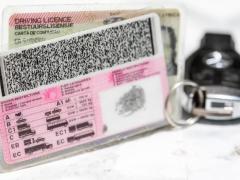According to the Standard Bank Africa Trade Barometer, the three most favoured payment methods among surveyed businesses in Mozambique for cross- border sales are EFTs (32%), international transfers (29%) and cash (16%) – with 67% of cross-border sales facilitated through these methods. “This is true even for surveyed small businesses where at least 63% and 68% of their cross- border sales and purchases, respectively, are facilitated through digital financial services (DFS),” states the report. There is also a move to cryptocurrencies, according to payments infrastructure and orchestration company TransFi. Regulatory uncertainty is seen to be an inhibiting factor to greater uptake, despite the savings on bank fees. “While digital assets are legal, there’s no law binding them. The central bank of Mozambique advises regarding crypto usage and places guidelines on appropriate use and precautionary measures, but it does not regulate or monitor the same in the region,” says TransFi. For domestic transactions, the bigger the surveyed business, the less it was found to use cash, according to Standard Bank. Big businesses report a more balanced use of cash and EFTs, with cash still maintaining an edge as their preferred payment method (40%), while EFTs follow (at 18%). Corporates mainly use EFTs for domestic transactions (53%) compared to cash (10%). This progression from cash to EFTs across business segments can be attributed to the typology of each business segment, with small businesses buying and selling in smaller quantities to merchants and consumers who prefer using cash. Cash is king for small businesses, accounting for 40% of domestic sales and 44% of domestic purchases. However, 44% of the small businesses surveyed by the bank prefer DFS for faster transaction processing times and enhanced security (25%). “This addresses their primary concern associated with cash transactions – loss of money/security risks (56%),” states the report. Mobile money is also making an impact on financial transactions, with Standard Bank seeing a sharp decline in card use. Increased penetration of smartphones has created the fundamentals for a mobile-first economy, and mobile money/ digital wallets in Mozambique have emerged as one of the fastest-growing industries. “There’s lots of cash in the countryside, but big cities are quickly catching on to digital options,” according to TransFi. No bank account or card is needed for mobile money services like M-Pesa, e-Mola and mKesh, which makes them more accessible than traditional banks and safer than cash. ER












